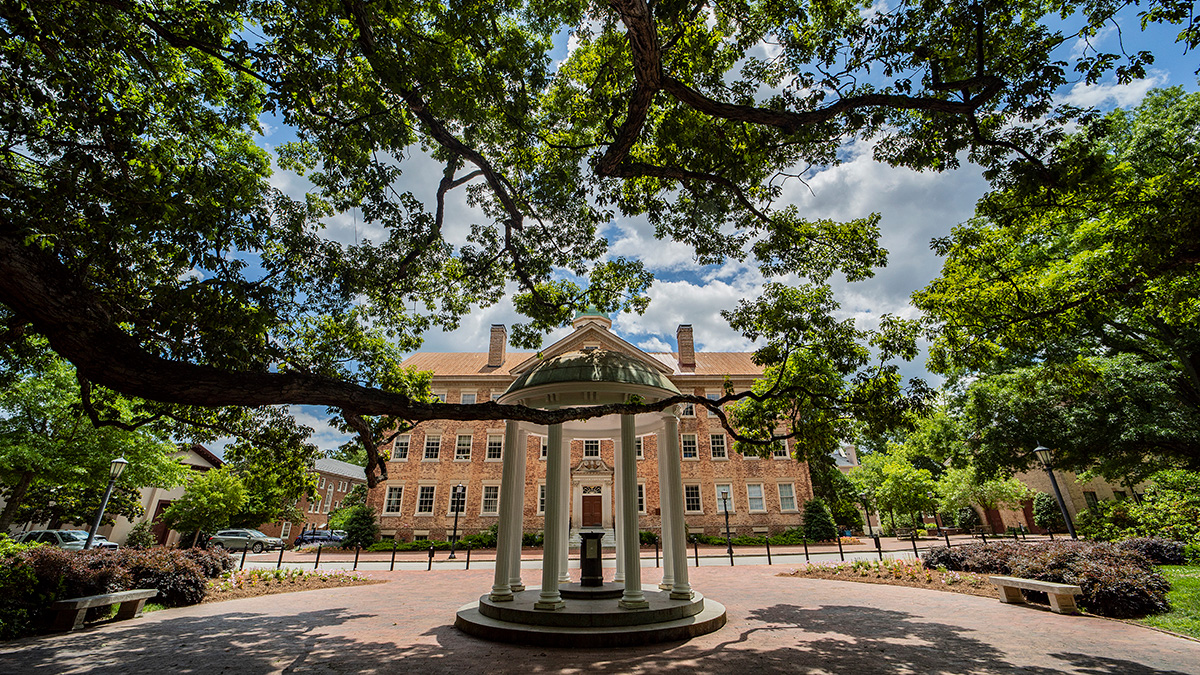Mental Health Task Force recommends permanent, ongoing attention in its report
The Mental Health Task Force has developed nearly 60 recommendations organized around three broad themes: wellness and climate; identification, treatment and ongoing support; and academic policies.

Carolina is encouraged to establish a permanent committee on mental health and conduct regular assessments of the changing mental health needs of students, according to the UNC-Chapel Hill Mental Health Task Force.
The task force presented its findings and recommendations to the University Board of Trustees’ University Affairs Committee on May 29. Executive Vice Chancellor and Provost Robert A. Blouin and former Vice Chancellor for Student Affairs Winston Crisp created the multidisciplinary group of faculty experts, students and professional staff in health, policy and student affairs in March 2018 to assess the mental health care needs of Carolina students.
After meeting more than a dozen times over the course of a year, the task force developed nearly 60 recommendations organized around three broad themes: wellness and climate; identification, treatment and ongoing support; and academic policies.
“To some extent we were trying to hold up a mirror to the University and look at ourselves, not with the intent of saying we do everything right or everything wrong, but to reveal some of the things that we could do better,” said task force chair Erica Wise, a clinical professor in the psychology and neuroscience department. “I think the group did that in a very respectful way focused on positive organizational change.”
Some of the recommendations are:
- Create a permanent committee on mental health to continuously assess the overall mental health needs of students, faculty and staff;
- Create a central health and well-being online resource;
- Promote wellness and academic coaching programs through student wellness;
- Explore opportunities to support transportation to and from off-campus treatment;
- Use technology to fill identified gaps in mental health services; and
- Explore options for peer support programs.
At universities across the country, students are experiencing greater distress and campus counseling services are being used at an increasing rate. The task force cited the American College Health Association’s Fall 2017 National College Health Assessment Survey of 26,000 undergraduates, in which 40% said that at some point in the previous 12 months they had felt “so depressed that it was difficult to function,” 61% had experienced overwhelming anxiety, and 12% had seriously considered suicide.
Data about Carolina students taken from the same survey paralleled national results: 37% of undergraduates said they felt so depressed it was difficult to function, 60% had experienced overwhelming anxiety and 11% had seriously considered suicide. View the full report on the Mental Health Task Force’s website.
Interim Vice Chancellor for Student Affairs Christi Hurt praised the task force as a hardworking group that covered all corners of campus.
“We appointed a broad-based consortium of folks across campus and I think that added to the committee’s strength. Mental health is something that needs to be addressed at both the macro level and the micro level — and it is,” Hurt said. “There is so much good work going on in this space, but we still have miles to go to make sure we are using all our efforts as efficiently as possible.”
No simple solution
The task force report concluded that the mental health challenges on Carolina’s campus are too multilayered and complex for a “simple, solitary or static solution.”
But the task force’s top two recommendations — the permanent committee and regular assessments to keep it informed — create a long-term approach to addressing the problem in a systematic, comprehensive way, Hurt said.
“We realized in pretty short order that mental health on campus is not something that will lend itself to a checkbox for quick to-do items,” Hurt said. “In fact, we need to be taking a much broader look over the long term so we can keep our feel for the pulse of the campus and its changing needs for years to come.”
The permanent committee would help address that need, Hurt said, but it would need constantly updated data to be most effective.
Because the student body changes constantly, “we need to continuously assess where our students are and what their needs are, and quite frankly, what our staff and faculty need in order to support students to their fullest,” Hurt said.
Challenges ahead
As task force members began their work, they became increasingly aware of the many people across campus who work tirelessly to address mental health needs across a spectrum of grassroots initiatives such as Active Minds at Carolina, a student organization dedicated to combating stigma against mental health issues, and the Buddy Project, a nonprofit movement that aims to prevent suicide and self-harm by pairing people as buddies.
“The good news is that we have a lot of people, from students working with peers to professional staff to our research faculty, who are very committed to this work,” Hurt said. “What we heard through this process is there isn’t anybody on campus who doesn’t want to be a contributor to a positive environment where our students can thrive.”
Wise and Hurt said they and other task force members are hopeful that the report will serve as a crucial first step as the University moves to build a more supportive, resilient and student-focused mental health system.
“All of us who served on the task force are very dedicated and hopeful and optimistic that this report will not be something that sits on a shelf and gathers dust,” Wise said.
The report concluded that Carolina is uniquely positioned to be a champion for student mental health throughout the country because of its commitment to this issue and the depth of expertise it can bring to bear to address it.
Hurt agreed.
“We can be a national leader in this area because we have such strong support at both the leadership and grassroots levels,” Hurt said. “I think when those things align, the sky is the limit.”




